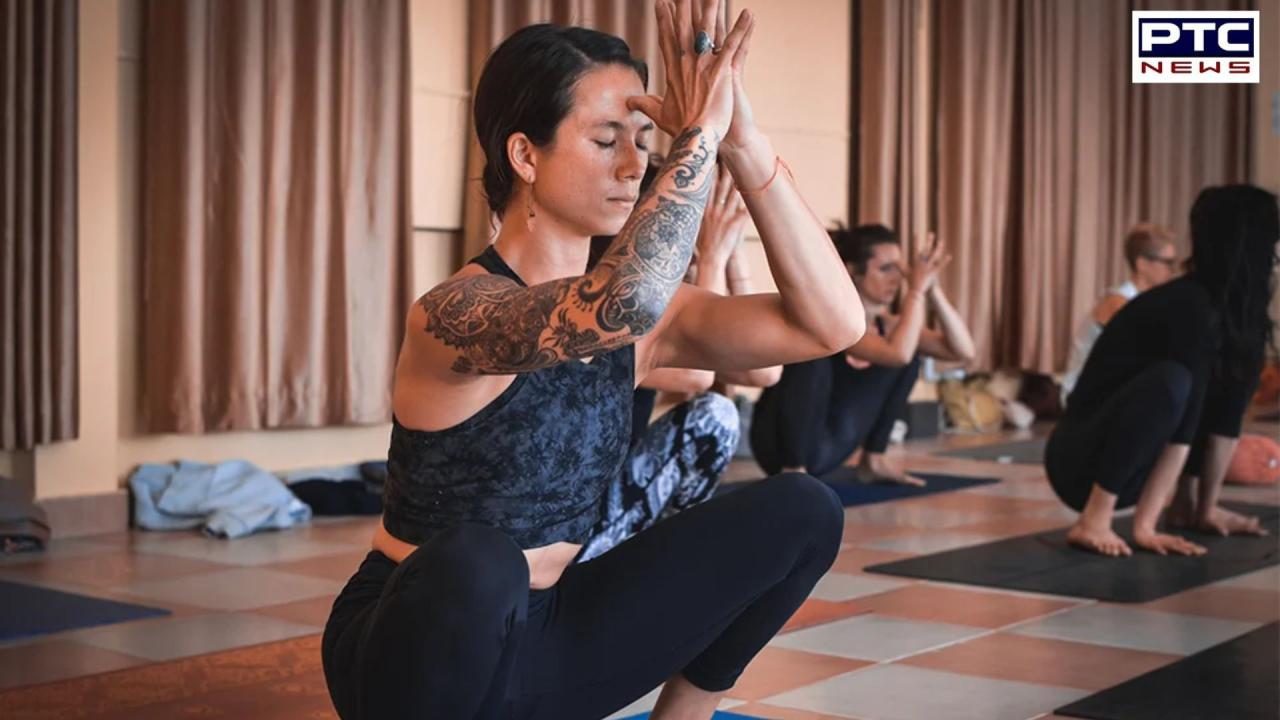

Yoga's impact on mental health: Know the benefits
PTC News Desk: Over 36 million Americans and many millions more people globally practice yoga. Yoga is an ancient discipline with intellectual and spiritual foundations that dates back thousands of years. Particularly in the United States, many practitioners pursue the health benefits. Yoga has significant advantages for your mental well-being as well.
Yoga's Psychological Benefits
Yoga comes in a variety of forms. The most popular kind of yoga in the United States is hatha yoga, which blends physical postures with deliberate breathing. Strength, flexibility, range of motion, and balance can all be enhanced by yoga. It can also improve mental health, albeit it is more difficult to quantify these advantages. Numerous studies have shown that yoga can:

Let go of beneficial brain chemicals: The majority of physical activity causes the brain's "feel-good" chemicals to be released. These neurotransmitters, which elevate mood, include norepinephrine, serotonin, and dopamine. Despite being slow and deliberate, yoga poses still increase heart rate, force the muscles to contract, and trigger the release of endogenous dopamine. Yoga can therefore increase your happiness.
Assist with depression: Yoga has been shown in studies to reduce depression. Yoga has been compared to other treatments, like medication and psychotherapy, by researchers. Generally speaking, yoga is affordable and doesn't have the same negative effects as many medications. Even people with significant depressive disorder may benefit from it. There aren't many controlled experiments on yoga's effectiveness for depression, therefore additional research is needed.
Lessen your tension: 86 per cent of Americans who responded to a survey asking why they practiced yoga stated that it helped them manage their stress. Tension can be decreased by contracting and relaxing the muscles. Most yoga courses have a serene environment, relaxing music, and an upbeat vibe that might also be helpful to you.

Reduce nervousness: Anxiety can be reduced with yoga. Given the link between anxiety and respiratory issues, yoga's breath training may be particularly beneficial. Yoga might not be helpful if you have been diagnosed with an anxiety problem. Nevertheless, some psychologists are adding yoga to their existing therapeutic modalities.
Boost your slumber: Studies indicate that yoga may help with sleep quality. This can be particularly valid for senior citizens. Participants in a research of yoga practitioners over 60-years-old reported an improvement in the amount and quality of their sleep. Additionally, they improved their sleep efficiency, which is a measurement of how much of the time spent in bed is really spent sleeping.
Improve your social life: Engaging with other students in your yoga session could be beneficial if you take it in person. Strong social bonds can benefit one's physical and mental well-being. Additionally, synchrony—behaving in harmony with others—has special advantages for society. Simultaneously breathing and moving with the group helps foster a sense of community and belonging.

Encourage additional wholesome behaviours: You could be more inclined to select healthful foods if you do yoga. Additionally, yoga could serve as a springboard for other forms of exercise. Being among health-conscious individuals can motivate you to adopt additional beneficial lifestyle adjustments.
In addition to these advantages, yoga might help those who are attempting to manage chronic illness, quit smoking, and reduce weight. Undoubtedly, your outcomes might differ. Your attitude, the caliber of your guidance, and the style of yoga you practice can all affect how things turn out.
How to Boost Your Mental Health with Yoga
Yoga is best learned in a group setting or one-on-one with a certified instructor. If needed, a yoga instructor can help you adjust your positions and offer corrections. Certain stances can be made easier with the help of blocks, belts, and other accessories. Instead of doing yoga on the floor, you can also do it in a chair.
Yoga can also be learned from a book, DVD, or online. However, attending a yoga session in person is the greatest way to prevent injuries. After mastering the fundamentals, books and videos can be used as practice tools. Yoga is best practiced at home in between classes, and online programs can add interest to your at-home sessions. You can practice yoga at home if you feel comfortable doing so when you are facing difficulties, such as increased stress or insomnia.
The Dangers of Yoga Practice
Although yoga is a low-risk exercise, sprains and strains are the most common ailments that might occur. Injuries might be caused by improper technique, underlying medical issues, or just striving too hard. It is possible to link certain injuries to underqualified teachers. Most yogis don't let the possibility of injury stop them from practicing. Less than 1% of people who suffered injuries while doing yoga quit.
Senior citizens who may have diminished bone density and muscle strength are more vulnerable to the dangers associated with yoga. If you sustain injuries while exercising, you should discuss your exercise regimen with your physician. Furthermore, yoga should never be used in place of medical attention.
- With inputs from agencies
